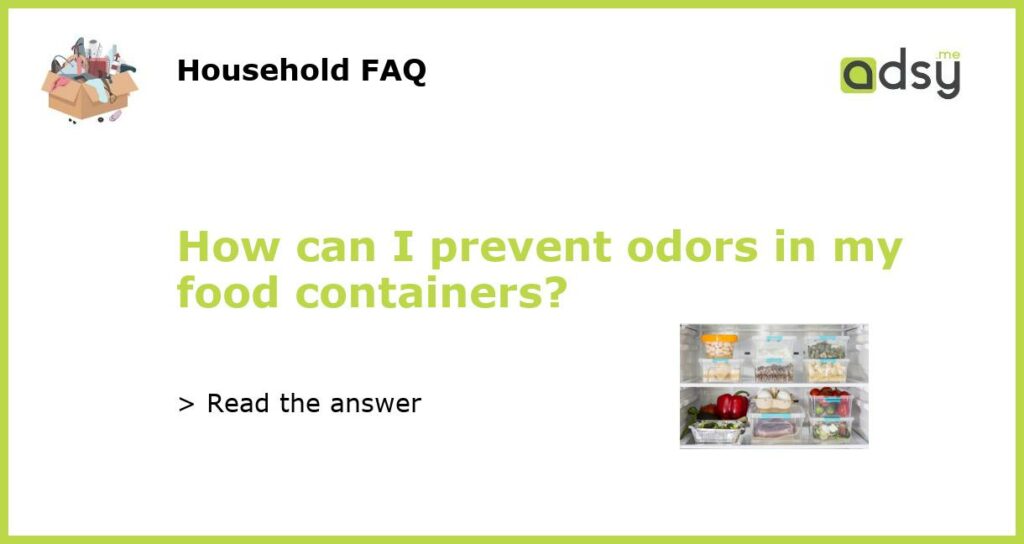Understanding the root cause of odors in food containers
Before diving into the ways to prevent odors from food containers, it’s crucial to understand the root cause of these unwanted smells. One primary reason for foul odors in food containers is bacteria growth. As bacteria break down food particles, they release unpleasant smells. Additionally, food with strong odors, such as onions and garlic, can transfer their scents onto other items in the container.
Use baking soda to keep containers fresh
Baking soda is an inexpensive and simple solution to prevent odors in food containers. Simply sprinkle a generous amount of baking soda on the bottom of the container, place a layer of paper towel on top, and then put the food inside. Baking soda naturally absorbs odors, and the paper towel helps to keep it contained.
Try activated charcoal as an alternative to baking soda
Activated charcoal is another natural odor absorber that can preserve the freshness of your food containers. You can find activated charcoal in the form of small bags or packets, which you can place inside the container to remove unwanted smells. Keep in mind that activated charcoal needs to be replaced every few weeks, depending on how often you use the containers.
Use vinegar and water to eliminate stubborn odors
If you’re dealing with stubborn odors in your food containers, a mixture of white vinegar and water can do the trick. Fill the container with a mixture of equal parts white vinegar and water, let it sit for a few hours, then rinse thoroughly. This solution will eliminate the bacteria causing the smells, leaving your containers fresh and odor-free.
Avoid storing strong-smelling foods in plastic
Plastic containers can absorb the smells of strong-smelling foods like garlic and onion, making it difficult to get rid of the odors. Instead, consider storing these foods in glass or stainless-steel containers. Glass and stainless steel are non-porous materials, making them less likely to absorb the scents of strong-smelling foods.



![GUANFU [10 Pack] Meal Prep Containers 1 Compartment, BPA Free Reusable Food Prep Containers with Lids - Microwave, Freezers & Dishwashers Safe - Stackable Storage Lunch Boxes (28 oz)](https://m.media-amazon.com/images/I/51I6N9hCEJL.jpg)


